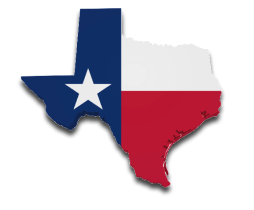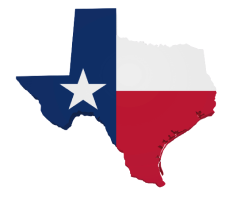The charm of Cypress, TX, lies in its balance of vibrant neighborhoods, green spaces, and the occasional heavy rains that grace the region. While the rainfall can provide much-needed relief from the Texas heat, it also comes with its own set of challenges. Among these, one of the most inconvenient and potentially hazardous issues is sewer line backups. For homeowners in Cypress, understanding how to prevent these backups, especially during the rainy months, is essential to maintaining a clean and safe home.
Understanding Sewer Line Backups
Before diving into prevention tips, it’s helpful to understand what a sewer line backupis and why it happens. Simply put, a sewer line backup occurs when wastewater from your home cannot flow freely into the municipal sewer system or septic tank. Instead, it reverses direction and can emerge through drains, toilets, or sinks—a messy and stressful situation for any homeowner.
Common Causes of Sewer Line Backups
- Heavy Rainfall:In Cypress, the soil’s clay-like texture combined with seasonal rains can overwhelm municipal sewer systems, causing water to back up into homes.
- Tree Root Intrusion:Tree roots, searching for water, can infiltrate and damage sewer pipes over time, leading to blockages.
- Clogged Pipes:Grease, wipes, and other debris flushed down drains can build up, narrowing the pipes and increasing the risk of backups.
- Aging Sewer Lines:Many homes in Cypress have older sewer systems that are more prone to cracks, misalignments, or collapse under pressure.
Why Fall Rains Make Sewer Backups More Likely
Fall is an unpredictable time of year in Cypress. While temperatures remain relatively mild, the season often brings short bursts of heavy rain. These downpours can flood streets and strain municipal sewer systems. If your home’s sewer line isn’t in top shape, it’s more vulnerable to backups during these periods of high water flow.
Practical Tips to Prevent Sewer Line Backups
1. Schedule Regular Sewer Line Inspections
One of the best ways to avoid a sewer line backup is to catch potential problems early. Professional plumbers can use advanced tools, such as cameras, to inspect your sewer line for blockages, cracks, or root intrusions.
- How Often?Most experts recommend scheduling an inspection every 1-2 years, or more frequently if you’ve experienced backups in the past.
- Local Tip:In Cypress, where tree-lined properties are common, inspections are especially important to monitor root activity.
2. Keep Your Drains Clear
Many sewer line problems start with clogged household drains. Avoid pouring grease, food particles, or coffee grounds down your kitchen sink. Similarly, don’t flush anything other than toilet paper down your toilet—this includes “flushable” wipes, which often do not break down as advertised.
- Quick Fact:According to the Environmental Protection Agency (EPA), 47% of sewer backups in the U.S. are caused by fats, oils, and grease (FOG) buildup.
3. Install a Backwater Valve
A backwater valve is a simple yet effective device that prevents wastewater from flowing back into your home during heavy rain. Installed in your sewer line, it’s a great investment for homes in areas prone to flooding.
- How It Works:The valve closes automatically when it senses water flowing in the wrong direction.
- Professional Installation:This is not a DIY project—you’ll need a licensed plumber to install it properly.
4. Address Tree Root Issues
Tree roots are one of the leading causes of sewer line blockages in Cypress. While trees add beauty to your yard, their roots can wreak havoc underground.
- Prevention:Use root barriers when planting trees near sewer lines.
- Professional Help:If roots have already infiltrated your sewer line, hydro jetting or chemical root treatments can remove them without damaging the pipes.
5. Improve Yard Drainage
Heavy rains can saturate your yard, increasing the risk of water seeping into your sewer line. Proper drainage systems can redirect rainwater away from your home’s foundation and sewer lines.
- Solutions:Install French drains, rain barrels, or a sump pump to manage excess water.
- Local Consideration:In Cypress, where clay soil retains water, proper grading and drainage are crucial.
What to Do If You Experience a Sewer Backup
Despite your best efforts, sewer backups can still happen. If you notice signs like slow-draining sinks, gurgling toilets, or a foul smell near your drains, act quickly.
Steps to Take:
- Stop Using Water:Limit water usage in your home to prevent further wastewater buildup.
- Call a Professional Plumber:A licensed plumber can diagnose the issue and provide immediate solutions.
- Document the Damage:Take photos for insurance purposes, especially if the backup causes significant damage.
- Clean and Disinfect:Once the issue is resolved, ensure all affected areas are thoroughly cleaned to prevent mold or bacteria growth.
The Benefits of Professional Plumbing Services
Attempting to handle sewer line maintenance or repairs on your own can be risky and often leads to incomplete fixes. Here are some reasons to trust the professionals at All Star A/C, Plumbing & Electrical:
- Expertise:With years of experience serving Cypress, we understand the unique challenges homeowners face in this area.
- Advanced Technology:From camera inspections to hydro jetting, we use the latest tools to diagnose and resolve issues efficiently.
- Peace of Mind:Knowing your sewer system is in the hands of skilled professionals can help you sleep better at night.
For Sewer Services in Cypress, TX, Contact All Star A/C, Plumbing & Electrical Today
Don’t let sewer line backups disrupt your home and family life this fall. By following the preventative tips outlined above and partnering with trusted professionals, you can keep your plumbing system running smoothly all year round.
At All Star A/C, Plumbing & Electrical, we’re here to help with all your plumbing needs. From routine inspections to emergency repairs, our team is dedicated to providing top-notch service in Cypress, TX, and the surrounding areas. Call us today to schedule an inspection or learn more about our services. Together, we’ll ensure your home stays safe, clean, and comfortable—no matter the weather!









